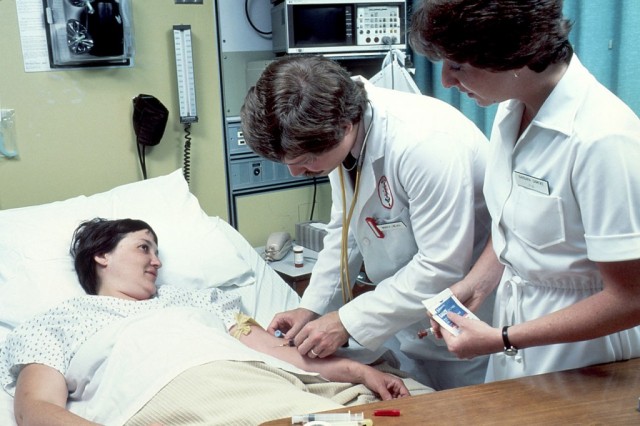ANN ARBOR, MI � A trip to the hospital usually means either you or someone you know is in poor health and needs immediate medical attention. And when it's time to go home, most likely, your doctor will give you a list of do's and don'ts, including eat a healthy diet and make sure to exercise. So, when you see your favorite fast food restaurant inside the hospital that just told you to eat healthy, you may be getting a mixed message � a message it appears many of the nation's top health institutions are sending.
In a research letter published in the June 12 issue of the Journal of the American Medical Association, researchers at the University of Michigan Health System and Ann Arbor VA Medical Center found 38 percent of the nation's top health institutions had regional or national fast food franchises on their main medical campuses. It's a statistic that is alarming to the authors of the letter.
"Obesity is rising at an alarming rate in the United States, with nearly 18 percent of adult Americans now considered obese. High-calorie diets, due in part to fast food, are partially to blame," says Peter Cram, M.D., lead author of the letter and lecturer in the internal medicine department at UMHS. "However, fast food restaurants continue to pop up across the country and hospitals appear to be no exception."
The researchers performed a telephone survey of 16 facilities listed as "Honor Roll" hospitals by the 2001 U.S. News & World Report ranking of "America's Best Hospitals". Six of the 16 "Honor Roll" hospitals were found to have fast food restaurants, with four facilities contracting with 2 chains simultaneously.
Among the six with fast food chains includes the University of Michigan Health System, an observation that, says co-author Brahmajee Nallamothu, M.D., inspired their research.
Continue Reading Below ↓↓↓
"I always found it odd that as a health institution we had a fast food chain in our facility, and I wondered if other top hospitals also did," says Nallamothu. "But through my research I found the UMHS food services department works hard to make sure the fast food chain offers healthy choices. In fact, the restaurant specifically marks the healthy food items on its menu."
Mark Fendrick, M.D., a co-author of the letter as well as co-director of the Consortium for Health Outcomes, Innovation, Cost Effectiveness Studies or CHOICES at UMHS, points out hospitals are businesses and they have certain needs they need to address.
"I realize these hospitals need to address important economic issues such as customer satisfaction, employee retention, and financial viability, and I believe fast food restaurants in hospitals offer patients and their families a sense of comfort," says Fendrick, also associate professor of health management and policy at the U-M School of Public Health. "However, if hospitals and the medical profession are to remain respected leaders in health promotion, we should re-visit the idea of serving fast food in the very place that we care for our most seriously ill."
The fast food debate echoes another recent issue that faced hospitals, says senior author Sanjay Saint, M.D., a research scientist at the Ann Arbor VA Medial Center and director of the UMHS Patient Safety Enhancement Program. "Hospitals should serve as an example for health conscious behavior. Forbidding smoking from American medical centers was a crucial first step. Perhaps encouraging healthy dietary intake will be a second," he says.
Source: University of Michigan Health System






